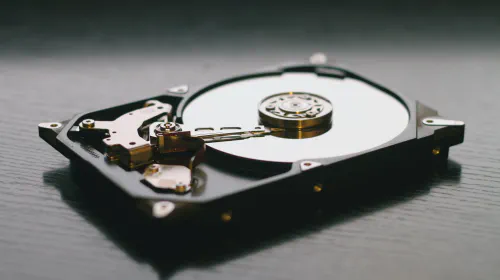Deceptive Tech: The Ethics of Deepfakes
Salomon Kisters
Jun 26, 2023This post may contain affiliate links. If you use these links to buy something we may earn a commission. Thanks!
In today’s digital age, technology has made it possible to manipulate video and audio in such a way that it can be incredibly difficult to tell what’s real and what’s not. This is where “deepfakes” come into play. Deepfakes are an AI-powered technique that can create fake videos or audio that appear to be genuine. While this technology has potential benefits in fields such as cinema and entertainment, it raises ethical concerns when it comes to social media, news media, and politics.
Given the ability to manipulate videos and audio in this way, people can now spread false information that can have real-life consequences. For instance, a deepfake video of a political leader saying something controversial could potentially rig an election. In addition, deepfakes can also be used to harass and defame individuals, further exacerbating an already rampant online bullying problem.
It’s clear that deepfakes can be incredibly deceiving, which is why it’s important to have a discussion about the ethics behind such technology. In this blog post, we’ll delve deeper into the potential negative consequences of deepfakes and explore ways to mitigate their effects. Join us as we examine the complex ethical issues surrounding deceptive technology and deepfakes.
The Emergence of Deepfakes
The concept of deepfakes emerged in 2017 when a Reddit user shared a video that showed the faces of celebrities superimposed onto pornographic videos. This sparked public concern about the technology’s potential to manipulate and deceive viewers.
Since then, deepfake technology has become more advanced and accessible. There are now several apps and websites that allow users to create deepfakes with minimal effort or technical expertise. Deepfakes can be made with just a few photos or videos, which are then fed into an AI algorithm to create a realistic-looking video or audio recording.
While some deepfakes are harmless and used for entertainment purposes, others can be malicious and pose a serious threat to society. As mentioned earlier, deepfakes can be used to spread false information that can have real-world consequences. They can also be used to defame or harass individuals, causing significant emotional distress.
As deepfake technology becomes more sophisticated, it’s becoming increasingly difficult to detect fake videos and audio. This poses a challenge for traditional fact-checking methods and raises questions about the reliability of media in general. Governments, tech companies, and journalists are all grappling with how to mitigate the negative effects of deepfakes and ensure that information shared online is accurate and trustworthy.
The Risks and Consequences
The dangers of deepfakes extend beyond the spread of false information. Deepfakes can also undermine the public’s trust in critical institutions, such as the media and government. If people can no longer distinguish between real and fake media, they may become disillusioned and distrustful of those in power.
Deepfakes can also have severe legal ramifications. Fake videos and audio can be used to frame individuals for crimes they didn’t commit or to discredit their testimony. In a court of law, deepfakes can be difficult to distinguish from authentic recordings, potentially leading to wrongful convictions or acquittals.
Another risk of deepfake technology is that it can be used to stoke political unrest or exacerbate existing ethnic and social divisions. Deepfakes can be used to spread hate speech, incite violence, or cast doubt on democratic processes.
Finally, deepfakes can also pose a threat to personal privacy. Since deepfakes can be produced using only a few images or videos, anyone can become a target of malicious deepfake creators. For example, a deepfake video of a private conversation could be created and shared without consent, causing serious reputational harm.
The Deception Dilemma
Deepfakes have opened the door to a new era of deception, where it’s becoming increasingly difficult to distinguish between fact and fiction. As the technology behind deepfakes continues to evolve, so too do the risks associated with their usage. In this subsection, we’ll delve deeper into some of the ways deepfakes can be used for nefarious activities and their potential impact.
Fake news has always been a concern, but with the advent of deepfakes, it becomes harder to discern the truth. Deepfaked news stories can be created to spread disinformation and manipulate public opinion, with catastrophic consequences. The impacts of these actions can be devastating — such as in the case of the 2016 US election, where blatant misinformation helped to sway the course of the election.
Moreover, the risks of deepfakes are not limited to influencing public opinion or spreading fake news. This technology can also be misused for criminal activities. For instance, deepfake videos can be created to frame people for crimes they didn’t commit, or to extort money by threatening to upload a deepfake video to social media platforms. In other words, individuals may be forced to pay to prevent the release of fake videos that incriminate them.
The Ethical Implications and Legality of Deepfakes
The creation and distribution of deepfakes can have severe ethical implications, posing serious threats to individuals’ privacy and reputation. Many have raised concerns about the harm that deepfake technology can cause, including the potential to create damaging and untrue content that can be difficult to distinguish from reality.
The legality of deepfakes is another important issue to consider. While there may be no specific laws related to deepfakes in some countries, existing laws on defamation, fraud, and privacy could be applied to deepfakes, depending on the context in which they are used. In some instances, the creation and distribution of deepfakes could result in criminal liability.
It is also worth questioning whether it is ethical to use deepfakes in any context, regardless of whether the content is defamatory or harmful. The creation of deepfakes raises important questions about the role that technology plays in shaping our society and whether we are prepared to accept the consequences of its misuse.
Moreover, the use of deepfakes raises questions about our trust in digital media and the reliability of information presented on social media platforms. The spread of disinformation through deepfakes undermines the foundation of democracy, as it is nearly impossible for individuals to make informed decisions based on false or misleading information.
Combating Deceptive Tech
While the problem of deepfakes may seem overwhelming, there are several possible solutions worth exploring. One approach is to develop and implement technologies that can detect and flag deepfakes, either through machine learning algorithms or human oversight.
Another solution is to increase public awareness about the dangers of deepfakes and educate people on how to recognize them. This could involve developing educational materials that can be distributed through schools, universities, and social media platforms.
In addition, lawmakers could pass legislation that specifically addresses the creation and distribution of deepfakes, imposing penalties on those who engage in these practices. Technology companies could also take a more proactive role in combating deepfakes by developing content moderation policies and investing in advanced technologies that can detect and remove deepfakes from their platforms.
Conclusion
As we delve deeper into the discussion of the ethics of deepfakes, it is important to take a moment to reflect on the broader implications of this technology. While deepfakes are often associated with political propaganda or manipulation, they have the potential to impact individuals in much more personal ways.
For example, consider the case of revenge porn. Deepfake technology could be used to create fake videos or images of individuals engaging in sexual acts, which could then be distributed online without their consent. In addition to the initial harm of having these images shared without permission, victims would also struggle to prove that the content was fake and may face ongoing consequences as a result.
Another concern worth considering is the impact of deepfakes on trust in digital media. As the line between what is real and what is fake becomes blurred, it becomes increasingly difficult for individuals to trust what they see online. This lack of trust could have significant implications for everything from journalism to advertising to social media.
Finally, it is important to consider the potential long-term impact of deepfake technology and its impact on our ability to discern truth from fiction. As deepfakes become more sophisticated, it may become increasingly difficult to separate what is real from what is fake. This could have significant implications for our ability to make informed decisions as a society.
In light of these considerations, it is clear that deepfake technology raises significant ethical questions that require careful consideration. As we explore potential solutions to combat the spread of this technology, it is important to keep these broader implications in mind and approach the issue with the necessary caution and care.
Stay informed with the latest insights in Crypto, Blockchain, and Cyber-Security! Subscribe to our newsletter now to receive exclusive updates, expert analyses, and current developments directly to your inbox. Don't miss the opportunity to expand your knowledge and stay up-to-date.
Love what you're reading? Subscribe for top stories in Crypto, Blockchain, and Cyber-Security. Stay informed with exclusive updates.
Please note that the Content may have been generated with the Help of AI. The editorial content of OriginStamp AG does not constitute a recommendation for investment or purchase advice. In principle, an investment can also lead to a total loss. Therefore, please seek advice before making an investment decision.

Blockchain Full Nodes: Functions, Types, and More | OriginStamp
Learn about blockchain full nodes, their functions, types, and more. Discover how full nodes store complete blockchain data and perform various tasks.

Cryptojacking - A Growing Cyber Threat
Learn about the rising issue of cryptojacking, a new form of cyber attack that involves hijacking people's computer resources to mine digital currencies without their knowledge. Discover how to protect yourself and your computer from this growing threat.

Importance of Cybersecurity Education: Protecting Your Online World
Learn why cybersecurity education is crucial in today's digital age to protect yourself and your online world from cyber threats and attacks.
Protect your documents
Your gateway to unforgeable data. Imprint the authenticity of your information with our blockchain timestamp